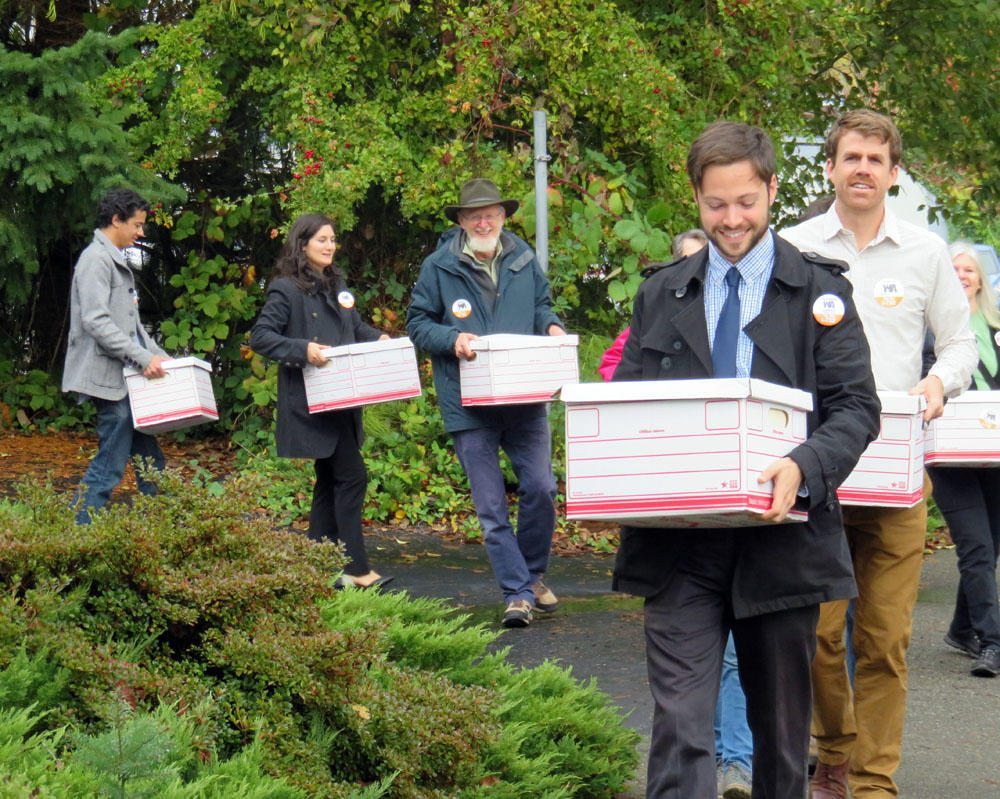A new report by CNN praises Washington State’s Initiative 732, the allegedly “revenue neutral” carbon tax. The writer is smitten by this idea:
“Washington’s Initiative-732 would make a bad thing — pollution — more expensive by putting a tax on each ton of carbon dioxide.”
The writer goes on to make a series of disproven claims, including:
1. I-732 is revenue-neutral, “meaning all of the money the state collects from the tax on carbon will be returned to the people and businesses as tax breaks.”
2. Because the tax is imposed on each ton of CO2-equivalent gases that are emitted, it “would show up at the gas pump and also on electric bills for businesses and homes.” Thus, businesses and people “gradually would shift to cleaner-energy sources that don’t pollute” in order to avoid the tax.
3. The “accompanying tax breaks” allows “many families” to save their hard-earned money.
4. British Columbia has proved the concept of a carbon tax works, so it’ll work in Washington State too.
5. There are several serious problems with the article, perhaps brought on by the author’s haste to praise the concept rather then actually review it.
Not once does the author bother to mention that, by the admission of the initiative’s leaders, I-732 is a highly flawed measure. In fact, I-732 backers requested that state lawmakers deliver another option for voters because, as they were forced to admit, the plan is screwed up.
At heart is the issue that, far from being “revenue neutral,” I-732 is projected to reduce state tax revenues by $915 million over four years – with most of the tax break going to Boeing, at time when the state is struggling to meet its funding obligation to our public schools. That figure has already grown from an earlier estimate that pegged the four-year budget hit at $675 million.
The author also ignores the significant reality that all the mistakes that have popped up since supporters wrote I-732. That reveals the almost innate uncertainty and instability associated with the initiative.
The fact that I-732 is not “revenue neutral” is not the only reality the author chooses to ignore.
1. He ignores the probability that businesses won’t just “shift to cleaner-energy sources,” when they can just pass the tax on to consumers. That, in turn, would negate the money saved by working families (if that is indeed the case).
2. In the same vein, the simple reality that businesses can just leave the state to avoid the tax never appears to cross the author’s mind. No mention is made of some businesses, like Alcoa, have already done just that in anticipation of various “green” schemes. Simply put, the carbon tax would erase a competitive advantage Washington State enjoys – low energy prices.
3. The author ignores the fact that even if the carbon tax is revenue neutral (which it’s not), it would not be neutral for everyone. You see, the scheme favors urban dwellers they have the opportunity to “gradually would shift to cleaner-energy sources that don’t pollute.” It’s the folks in rural areas, agricultural businesses, etc. (those who can’t necessarily avoid higher transportation costs) who would bear the brunt of revenue shifts.
Finally, the author points to the success of the scheme in British Columbia. But, again, fails to recognize key points that shed skepticism on the actual success of the carbon tax up north.
In fact, when considering the economic context, one could make a strong argument that the carbon tax has not led to success in B.C. The Prince George Citizen,
“Yet if one considers GDP, British Columbia’s has increased from $203.9 billion to $219.9 billion since the carbon tax was introduced. That is 7.87 per cent according to Statistics Canada.
“Canada’s GDP, on the other hand, has increased from $1.6 trillion to $1.8 trillion or by 10.56 per cent. Indeed, the rest of Canada has seen an increase of just over 10.95 per cent. British Columbia is weighing down Canada’s growth in GDP.”’
In 2005, B.C. “represented 12.35 per cent of the Canadian economy.” By 2012, after the carbon tax was implemented in 2008, “that number had dropped to 12.08 per cent.” The decrease may seem small, but it indicates that B.C.’s economy is “not growing as fast as the rest of the country in either absolute or relative terms.”
The Prince George Citizen points out that the success of the carbon tax is “just smoke and mirrors.” The reality is that a carbon tax has not helped British Columbia’s economy. Rather, the scheme has stagnated it.
Australia faced a similar stagnation after it implemented a carbon tax. The country repealed the scheme for that reason back in 2014.
Considering the facts on the other side of the issue, implementing a carbon tax doesn’t seem to be the no-brainer step that the author implies.
Just seems maybe the writer is a no-brainer – and greenies love that!




